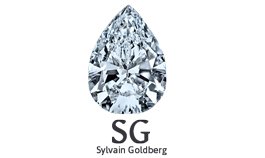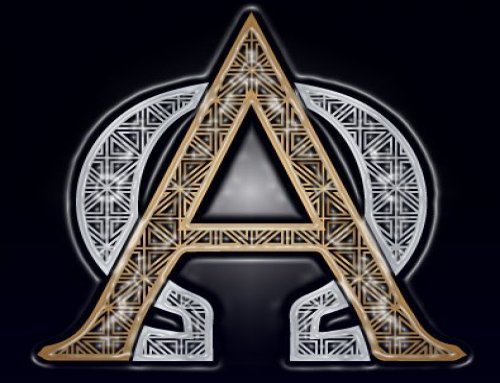Stock market, real estate, gold, various collections… Besides these classical markets, some investors are looking for other paths. Unknown to the general public. Sometimes risky. Like the diamond market. Investing in diamonds. But how to find your way around and avoid fraud?
Diamonds are a woman’s best friend, it’s well known. Indeed, how can you resist the sparkle of a handful of beautiful sparkling stones?
What if you decided to invest part of your assets in the purchase of a few pretty stones? No doubt this question must have occurred to you at one time or another. To complement other traditional investments, which no longer yield as much as they used to. You already own your house, the price of gold is high and the stock market is no longer as attractive. So what should you do with your savings? Why not invest in diamonds? Beautiful, they’re also forever or eternal, according to De Beers the James Bond saga.
They are part of those investments qualified as atypical or alternative investments. In the same way as the purchase of manuscripts, ancient antiquities or collector coins. A product considered attractive at first glance, but which nevertheless hides pitfalls to be avoided.
A market intimately linked to Belgium, and more particularly to Antwerp, one of the major platforms of the world diamond market. More than half of the world’s polished diamonds transit through the port city, accounting for some 84% of rough diamonds. These diamonds also account for about 5% of Belgian exports.
Investing in Diamonds, a user’s guide
First thing to keep in mind before investing: the diamond market is unregulated and unstable. Don’t be dazzled by the numerous press articles that remind you of the growing demand for diamonds in the world. Nor by the sales companies on the Internet who will boast about the profitable advantages of investing in diamonds. With a return that easily reaches double digits.
Buying a diamond well begins with the work of documentation, comparing offers and understanding the workings of the diamond market. Buying a diamond on its own is certainly not a good idea. In addition to the four criteria related to the purchase of a diamond (weight, colour, clarity and cut), other factors come into play and require a certain expertise.
So take the time to think about these factors and measure your appetite for risk and the amount of your assets you are prepared to lose if something goes wrong.
Before placing your trust in a company specializing in the sale of diamonds, carry out a search on the net, research its balance sheet and find out whether or not its name appears on specialized forums with complaints or negative opinions.
If in doubt, do not entrust him with any purchase transaction. A serious company will advise you on a long-term investment, offer you useful advice on diamond taxation and a history of capital gains. While insisting on the absence of guaranteed return.
How to avoid scams
Without wanting to play Cassandra, investing in the diamond market is not done lightly. With a first reminder written in gold letters: investing correctly means knowing how to diversify your investments.
With diamonds, the most common fraud that you will certainly face one day or another will be that of canvassers. By telephone or email. A technique, called cold calling, frequently used to offer you a tempting return, on average 10%, as long as you decide quickly. Keep in mind that a high return is always synonymous with an equally high risk, and therefore an extreme danger to your capital.
Another common scam: the platform linked to the buying and selling of diamonds offers you to buy diamonds for an agreed amount. Before offering to resell them for you. Of course, you will receive a first attractive capital gain. It will encourage you to invest more in new stones. The trap will then close on you and your money, which you will not see again. Another potential risk for victims of fraudulent platforms is that they may not be able to resell the diamonds you bought. Not to mention fake diamonds sold at the price of real stones. As with moissanite, often sold as diamonds. A brilliant synthetic stone but much cheaper than diamond.
Investing in diamonds: the FSMA to the rescue
Before investing in diamonds through a Belgian firm, you should first visit the website of the FSMA, the Belgian financial services and markets authority. In addition to the usual warnings, and specific to any investment, others are more intimately linked to the diamond market.
Among the recommendations made by the FSMA is to check that all information related to the identity of the diamond company is present on the platform, such as legal contact details, an address or a telephone number. A company that has been created too recently should warn you. You should also find out beforehand how to buy and resell your diamonds. If nothing is clear, abstain from investing your savings and change platform. If the company seems dubious to you, go to the non-exhaustive list established by the FSMA with the companies indicated by the consumers (French & Dutch links below):
- www.fsma.be/fr/warnings/liste-des-sites-web-proposant-des-investissements-dans-le-diamant-signales-par-les
- www.fsma.be/nl/warnings/lijst-van-door-consumenten-gemelde-websites-die-beleggingen-diamanten-voorstellen
The FSMA is not qualified as a policeman of the markets with no reason.
And in conclusion?
While diamonds can be an excellent investment for the long term, in view of the above, it is important to use them with caution. Because not everything that shines is of great value.
Buying a diamond should therefore be done with great care and with the advice of professionals.
Let me thus conclude by stressing that the diamond is an original alternative investment, certainly, but to be reserved for those who do not have cold eyes.




